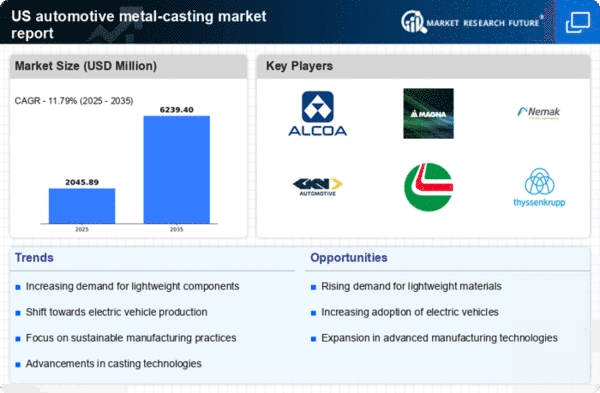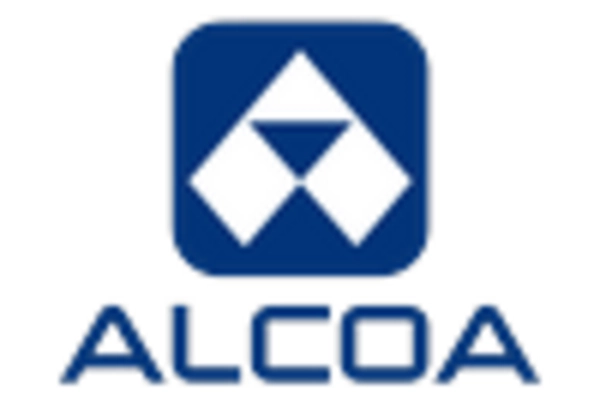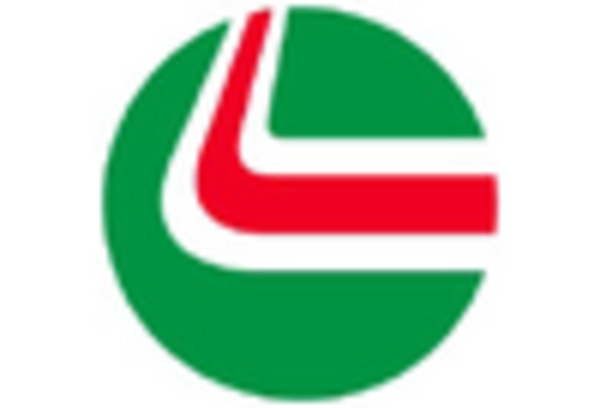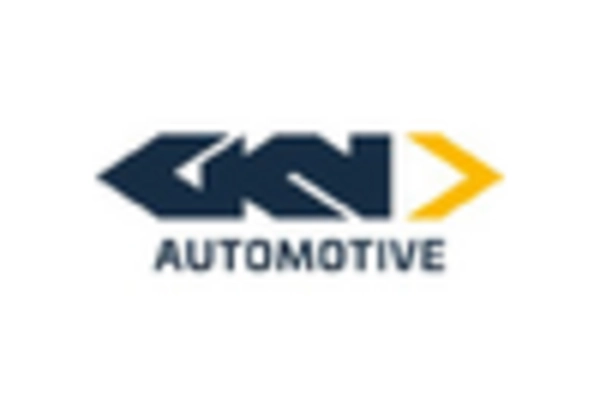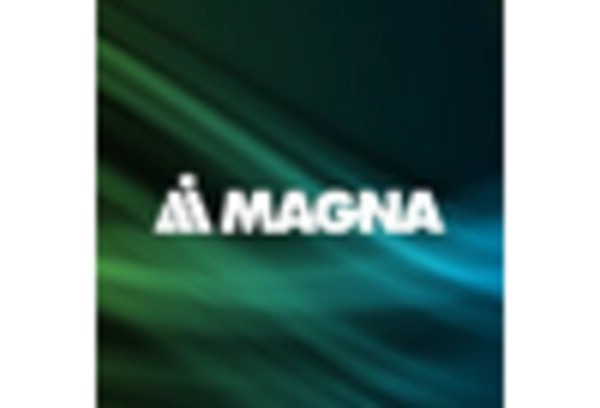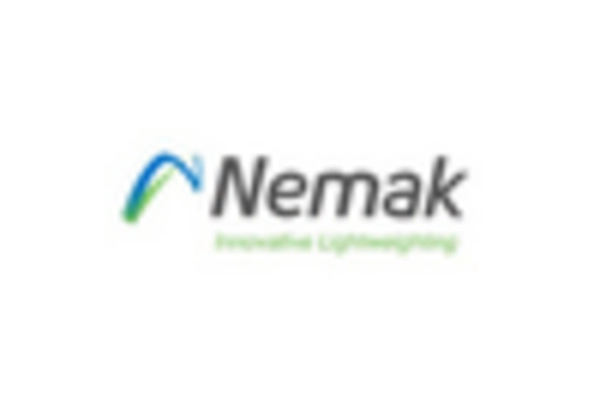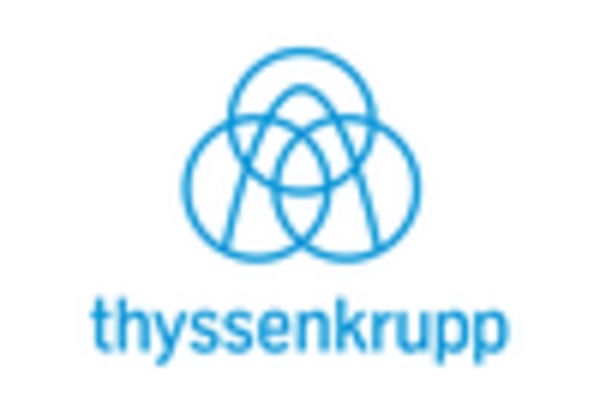Increased Focus on Fuel Efficiency
A heightened focus on fuel efficiency among automakers is driving the automotive metal-casting market. As regulatory standards become more stringent, manufacturers are compelled to develop lighter vehicles that consume less fuel. This trend is leading to a greater reliance on metal-casting techniques that produce lightweight components, such as engine blocks and transmission housings. In 2025, it is anticipated that the demand for lightweight castings will increase by approximately 20%, as automakers seek to enhance the fuel economy of their fleets. Thus, the automotive metal-casting market is likely to play a crucial role in supporting these initiatives.
Rising Demand for Electric Vehicles
The automotive metal-casting market is experiencing a notable surge in demand due to the increasing popularity of electric vehicles (EVs). As manufacturers pivot towards EV production, the need for lightweight and durable components becomes paramount. This shift is likely to drive the market for aluminum and magnesium castings, which are favored for their strength-to-weight ratios. In 2025, the EV market in the US is projected to grow by approximately 30%, necessitating a corresponding increase in metal-casting capabilities. Consequently, the automotive metal-casting market is poised to benefit from this transition, as automakers seek to optimize performance and efficiency in their electric models.
Growing Investment in Automotive R&D
Investment in research and development (R&D) within the automotive sector is significantly impacting the automotive metal-casting market. As companies strive to innovate and improve vehicle performance, they are allocating substantial resources to develop advanced materials and casting techniques. In 2025, R&D spending in the automotive industry is projected to reach $20 billion, with a considerable portion directed towards metal-casting technologies. This influx of investment is expected to foster advancements in casting processes and materials, thereby enhancing the overall capabilities of the automotive metal-casting market.
Technological Advancements in Casting Processes
Innovations in casting technologies are significantly influencing the automotive metal-casting market. Techniques such as 3D printing and advanced die-casting are enhancing production efficiency and reducing waste. These advancements allow for more complex designs and improved material properties, which are essential for modern automotive applications. The adoption of these technologies is expected to increase by around 25% in the next few years, as manufacturers strive to meet the evolving demands of the automotive sector. As a result, the automotive metal-casting market is likely to see a transformation in production methodologies, leading to higher quality and more sustainable casting solutions.
Expansion of Automotive Manufacturing Facilities
The automotive metal-casting market is benefiting from the expansion of manufacturing facilities across the US. As automakers increase production capacities to meet rising consumer demand, the need for efficient metal-casting operations becomes critical. In 2025, it is estimated that new manufacturing plants will emerge, leading to a projected growth of 15% in the automotive metal-casting market. This expansion is likely to create opportunities for local suppliers and enhance the overall supply chain, thereby strengthening the market's position within the automotive industry.


